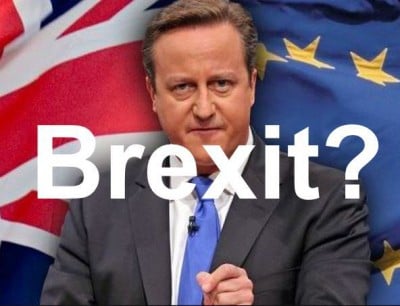Brexit Referendum Is Non-Binding. UK Parliament Not Voters has Final Say

Update:
Prime Minister Cameron has announced his resignation effective in October, a new Conservative Prime minister is to appointed following the Conservative Party conference.
Among the contenders for the Conservative Party leadership are former London Mayor Boris Johnson and Justice Secretary Michael Gove, both of whom were firm supporters of the Brexit campaign. Home Secretary Theresa May is also a potential contender.
The implementation of Brexit is in part dependent upon the new leadership of the Conservative Party. There are divisions in both Conservative and opposition parties with regard to Brexit.
At this stage, there is, however, no assurance that the Brexit proposal will be ratified by Parliament. (read Lendman’s analysis below)
Moreover, Cameron’s decision to resign in October contributes to delaying the process.
Michel Chossudovsky. GR Editor, June 24, 2016
* * *
All the fuss and bother about Brexit largely ignores its non-binding status – parliament, not voters deciding if Britain stays or leaves the EU, the latter extremely unlikely.
Writing in the Financial Times, British lawyer David Allen Green explained Brexit voting is “advisory,” not “mandatory.” Parliament has final say.
MPs can legally disregard the public’s will either way, they alone empowered to decide the path Britain chooses.
What happens ahead is “a matter of politics not law. It will come down to what is politically expedient and practicable,” said Green.
Various options exist, including supporting Thursday’s outcome, ignoring it, or “re-negotiating another deal and put(ting) that to another referendum” – repeating the process “until voters eventually vote the ‘right’ way,” what’s best for monied interests, not them.
Invoking Article 50 of the Lisbon Treaty is another matter entirely, legally binding, unlike Thursday’s vote. It states as follows:
“1. Any Member State may decide to withdraw from the Union in accordance with its own constitutional requirements.
2. A Member State which decides to withdraw shall notify the European Council of its intention. In the light of the guidelines provided by the European Council, the Union shall negotiate and conclude an agreement with that State, setting out the arrangements for its withdrawal, taking account of the framework for its future relationship with the Union.
That agreement shall be negotiated in accordance with Article 218(3) of the Treaty on the Functioning of the European Union. It shall be concluded on behalf of the Union by the Council, acting by a qualified majority, after obtaining the consent of the European Parliament.
3. The Treaties shall cease to apply to the State in question from the date of entry into force of the withdrawal agreement or, failing that, two years after the notification referred to in paragraph 2, unless the European Council, in agreement with the Member State concerned, unanimously decides to extend this period.
4. For the purposes of paragraphs 2 and 3, the member of the European Council or of the Council representing the withdrawing Member State shall not participate in the discussions of the European Council or Council or in decisions concerning it.
A qualified majority shall be defined in accordance with Article 238(3)(b) of the Treaty on the Functioning of the European Union.
5. If a State which has withdrawn from the Union asks to rejoin, its request shall be subject to the procedure referred to in Article 49.”
Green highlighted key points. Member states can choose how to vote on withdrawal – by referendum, parliament or other means.
The withdrawal process begins with formal notification. Once “given, the member state and the EU are stuck with it.”
Member states wishing to withdraw have up to two years maximum to complete the process “unless this period is extended by unanimous agreement.”
Once withdrawal intentions are announced and initiated, there’s no going back. At the same time, what’s “created by international agreement can be undone” the same way.
Brussels could “come up with some muddling fudge which holds off the two year deadline,” or a new treaty amendment could be adopted.
Politics alone will drive what happens ahead, not the will of the people. Britain is no more democratic than America – nor are any other EU countries.
Special interests decide things. Whatever they want they get. However voting turns out, government policy “is to remain in the EU,” said Green.
Leaving would require Prime Minister David Cameron invoking Article 50, unlikely given his vocal opposition to Brexit.
Stephen Lendman lives in Chicago. He can be reached at [email protected].
His new book as editor and contributor is titled “Flashpoint in Ukraine: US Drive for Hegemony Risks WW III.”
http://www.claritypress.com/LendmanIII.html
Visit his blog site at sjlendman.blogspot.com.
Listen to cutting-edge discussions with distinguished guests on the Progressive Radio News Hour on the Progressive Radio Network.

